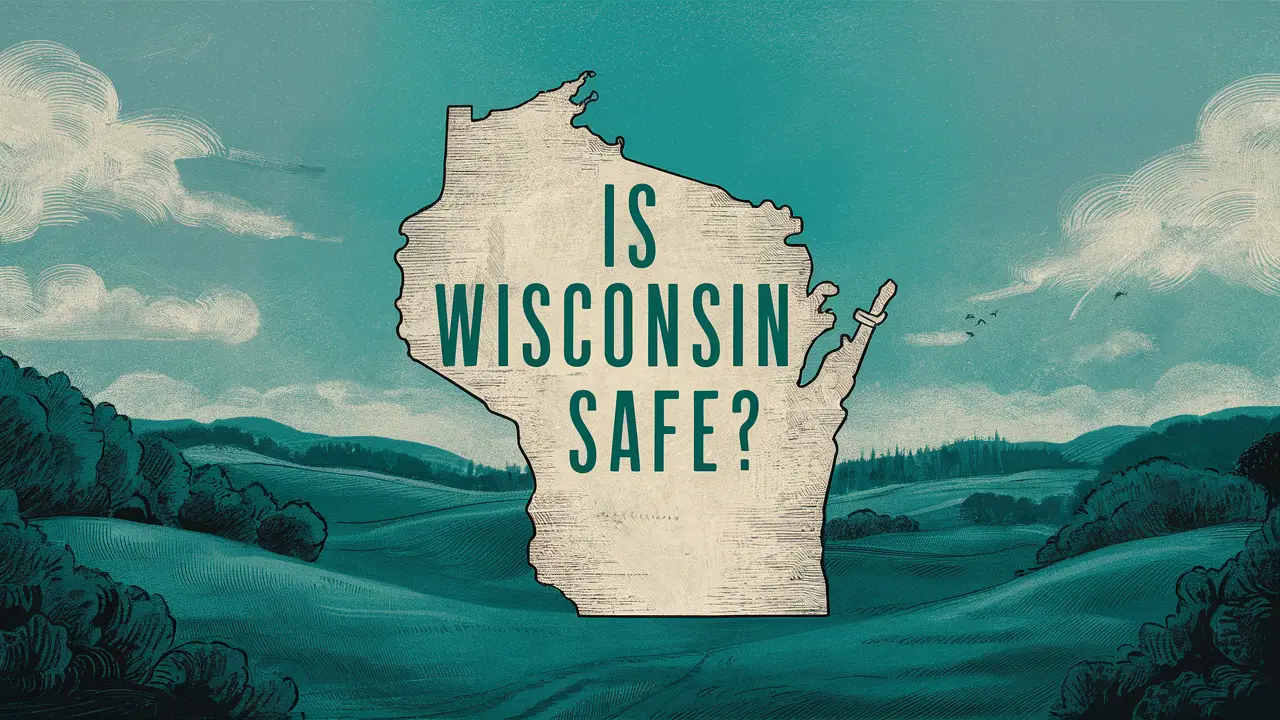inhabitants do not expect the degree of violent crime in Wisconsin to be extremely high since the state is regarded as one of the Midwest states of the US; but, is it safe for the inhabitants of Wisconsin as well as the visitors? Among other factors, this article will look at the several components that characterize safety—crime rate, natural catastrophes, and health hazards—to determine whether Wisconsin is as safe as it is thought to be in terms of living, working, and visiting.
Crime Rates
Based on current FBI Uniform Crime Reporting statistics, Wisconsin boasts lower rates of violent and property crimes than the countrywide averages. Wisconsin's violent crime rate, with 456,285 events per 100,000 people, is lower than the national average of 398 events per 100,000 people. Property crime, at 1,257 per 100,000 persons in Wisconsin compared to 2,200 in the United States, is another measure that has helped Wisconsin favorably.
In Wisconsin, they discovered that big cities had a higher crime rate than other parts of the state. Milwaukee once more had the greatest number of violent offenders in 2020—4358—which results in a violent crime rate per 100000 in Milwaukee at 1037. But Milwaukee's property crime rate is shockingly close to the state average. Milwaukee's property crime rate—2,450 per 100,000 people—is rather close to the state average of 2,462 per 100,000 people. Madison and Green Bay, among other smaller meteors of a similar kind, have lower crime rates per person than Milwaukee. All things considered, Wisconsin's crime rates are rather low and can be regarded as less than those of other states based on the crime statistics.
Natural Disasters
One of the few misfortunes that few people realize is that Wisconsin is an inland state and therefore it rarely experiences any natural disasters. Of all the natural disasters, earthquakes are very rare within the state as it only has a 2% likelihood of a moderately active quake in the next 50 years. Hurricane activity is not as pronounced in Wisconsin and it does not experience direct hurricane strikes, which has never happened in the state.
Although, flood remains a moderate threat to Wisconsin communities. Floods are frequent when storms are very strong and this leads to increased flood disasters in floodplains since rivers and lakes flood. Fifty-one cities in Wisconsin experienced fifty-seven floods between 1996 and 2016 with 38 resulting in fatalities and over 775 million dollars in losses. Tornadoes are another issue since Wisconsin falls in the fifteenth place among states that have experienced most of these disasters in the period between 1991 and 2010. Tornadoes in the state are generally concentrated in the south half of it. In conclusion, thereby comparing Wisconsin to the regions where hurricanes or earthquakes pose a constant threat, it can be stated that the threat of natural disasters in Wisconsin is lower.
Health Hazards
The health statistics of Wisconsin remain at par with the national average or slightly above in numerous health rankings. It was ranked 20 on the healthiest state in America on the America’s Health Rankings Report 2022. This is due to above-average air pollution in the metro and higher proportions of excessive drinking in the state.
Bacterial and parasitic illnesses that transmit through food and water are of minimal threat in Wisconsin. Of these, the most common source is bacteria from contaminated fruits vegetables, and water in the community. There are ways that Wisconsinites can avoid getting sick and these include properly rinsing produce, cooking foods to the right internal temperature, and handling water that may be contaminated. , and overall health care provisions are easily accessible to residents while they are exposed to limited health risks differently from other states.
In Conclusion
Some of the highlights presented indicate that, according to the crime rate, Wisconsin is one of the safest states in the Upper Midwest and the United States in general now. However, crime is low in all the other states apart from Wisconsin, Milwaukee, or Chicago specifically, natural disasters are not a major issue and there is no major health risk to the well-being of the people of the respective states. However, floods result in damages estimated every year; tornadoes affect cities in the south; and contamination produces diseases through food and water. Alas, there is no ideal country or state, but the security conditions of Wisconsin are quite good which is why one can have safe living, working, and spending great time enjoying all the beauty of Wisconsin called Badger State.







